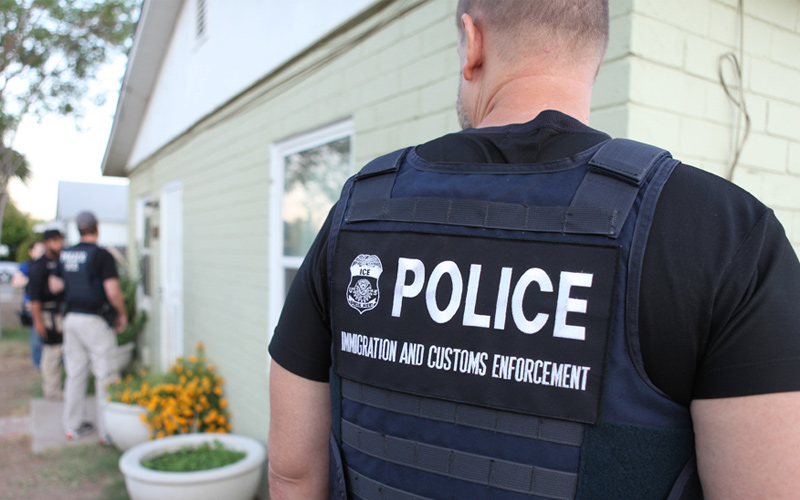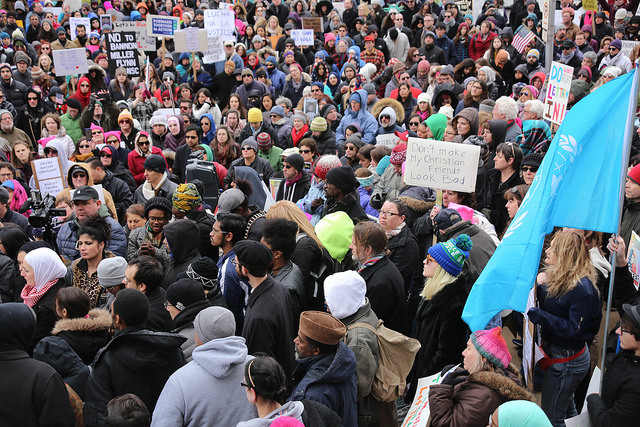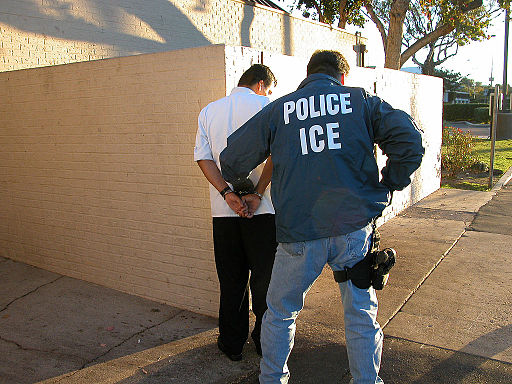What Now for Salvadorans in the United States?

Questions about immigrants in America have been at the forefront of public discussion over the past month, as controversy swirls around a US government shut-down on behalf of regaining protections for Deferred Action for Childhood Arrivals (DACA) recipients, and Trump’s controversial remarks that the United States should accept less immigrants from “shit-hole countries” such as Haiti and El Salvador. Not only has attention been devoted to these issues, but they have developed rapidly. The DACA programme – designed to provide protections to those brought into the United States illegally as minors – was cancelled unilaterally by Trump last September. Hesitance on the part of the Trump administration, allegedly due to the out-sized role of hard-line staffers, brought immigration negotiations to a halt earlier this month, laying the ground for the shutdown. This, in conjunction with a debate over whether Trump’s “shithole” countries comment makes him a racist, has consumed much media attention. However, DACA is not the only humanitarian-based immigration programme the Trump administration has turned its eyes on this past month, deciding on January 9th to cancel the protected status of several hundred thousand El Salvadoreans living in the United States.
The granting of Temporary Protected Status (TPS) is a humanitarian measure used when it is deemed too unsafe to return foreign nationals located in the United States at the time of its designation to their home countries. This protection grants recipients the right to live and work in the United States, however comes with no pathway to citizenship. Prior to recently, about 425,000 people from 10 countries were covered by such decrees, among them nationals of South Sudan, Syria, and Yemen. The current TPS Status for El Salvadoreans was first granted by the Bush Administration after a devastating earthquake hit the country in 2001; El Salvador was also covered by such a status during its civil war in the 1990’s. This status had continuously come up for renewal under both the Bush and Obama administrations; most recently in 2016 when El Salvador was found to still be unsafe. Despite this precedent, the Trump Administration decided against another renewal mirroring its prior decisions on Haitians and Nicaraguans with TPS. In justifying this, the Administration cited that “the original conditions caused by the 2001 earthquakes no longer exist” and therefore “under the applicable statute, the current TPS designation must be terminated”.
This move effectively means that the nearly 200,000 El Salvadoreans living in the United States under the TPS programme will have until the 19th of September 2019 to remove themselves from the country or face deportation, presuming they file for renewal in the next 60 days. According to the administration’s decision, this 18 month time frame is intended to facilitate “an orderly transition” and to “provide El Salvador time to prepare for the return and reintegration of its citizens”.

These migrants account for 135,000 households in the United States. Additionally, 88% are part of the workforce, 10% are self-employed, and another 10% are married to US citizens. Furthermore, the revocation of TPS calls into question the status of approximately 185,000 children, who unlike their parents have US citizenship by virtue of being born in the United States. Thus, the decision will affect up to 480,000 people, and leave families with impossible choices as they face uncertainty about what options they have available.
The first option that these individuals have is to return to El Salvador, either of their own volition or as a result of the deportation process. Although El Salvador is no longer the world’s most violent country, it is far from safe, with a murder rate three times the Latin American average, and almost seven times the global average. Furthermore, the return of migrants to El Salvador will put economic strains on the country itself. The US based diaspora is El Salvador’s primary source of remittances. These were worth 3.6 billion in 2012 alone, and reductions caused by the current uncertain status of El Salvadoreans in the United States, be they TPS holders or illegal immigrants, will do little to help the country’s stability. To return to El Salvador would also create a secondary dilemma for those once protected by TPS, as they have to choose whether to keep their families together and bring their children to a dangerous country or leave them behind in America where they have legal citizenship.
Given that this is an undesirable option for many of those affected, they are left with several remaining choices. They can try their luck through the legal immigration system in the United States, however any applications for a green card would have to be made from El Salvador itself. Additionally, challenging this solution is the fact that the TPS programme, as with DACA, provides no pathways to citizenship, meaning that the El Salvadoreans losing their status will receive exactly the same preferential treatment as someone who had never been in America despite their increased connections. Further casting doubt on this possibility is Trump’s stated desire to not have immigrants in America from what he views as “Shit-hole” countries such as El Salvador. In the days following those remarks, the Trump administration announced it will bar Haiti, another country that was both referred to by name and has seen its citizens’ TPS revoked, from receiving low-skill visas for its residents.
Considering this, a second choice that could be made is to try to press an asylum claim in a third country, likely Canada, as thousands of Haitians chose to do over the fall and summer of 2017 when faced with the same dilemma. However, this too is challenging, due to the third safe party country agreement between Canada and the United States. This agreement prevents refugees from claiming asylum at land border crossings as the United States is recognized by Canada as a “safe country”. Therefore, in order to claim protections, any crossing has to be done illegally. In August and September of 2017, such crossings grew to the point that the Canadian military had to set up a temporary processing camp near the American border. Keen to avoid a similar situation, Canadian immigration officials have already begun communicating with the El Salvadorean community that any immigrants will have to go through an already backlogged Canadian immigration process, and that acceptance of their claims is not guaranteed.
The final choice available to those who have had their protected status revoked is to remain in America illegally, yet, this too is far from a desirable option. Illegal immigrants do not have access to government services and their children cannot go to universities; additionally they face the risk of deportation at any time. Furthermore, an increase in unusual and seemingly hostile tactics by Immigration and Customs Enforcement (ICE) officials, such as the targeting of private employers through raids on their stores, and the deportation or detainment of immigration activists, has increased fears among migrant communities.

In addition, the Trump administration has made the decision to target all undocumented immigrants rather then just those with criminal backgrounds, as was the policy under Obama. This has adverse effects on not just the families affected, who may for instance pull their children from school, but also for their wider communities. Public health issues emerge as immigrants become afraid to go the hospital and deal with public employees, especially as ICE employees allegedly follow people to hospitals. Additionally, crime becomes a greater issue as those without legal status become more afraid to deal with law enforcement officials to report crimes, and as they lose the ability to work and support their families legally.
It is hard to know which of these tenuous options the bulk of the roughly 480,000 people affected by this development – once children of those who will lose status are taken into account – will take. None are easy choices, and all will result in a great deal of disruption for policy makers and vulnerable communities as a whole, as families are forced to make hard choices which will irreversibly change their own as well as their children’s futures. This disruption will have real consequences – parents will have to make the choice of whether or not to leave their children, who are American citizens, behind or to take them to back to El Salvador. Many may try to claim asylum in Canada, as Haitians did before them. Despite the Canadian government’s attempts to discourage this, the sheer number of people affected could create another border crisis as people try to find a safe place for themselves and their families. Although the number of El Salvadoreans effected is less than the 700,000 who may face deportation if a solution to the DACA issue is not found, it is still a sizeable number.
It seems probable that a large portion of the hundreds of thousands of TPS holders and their families will stay in the United States, joining an illegal immigrant community, who with the President’s recent comments and policies feel increasingly under attack. The climate of fear growing in these communities means avoiding interactions with the government, pulling children from schools, hesitating to seek medical treatment, and an entire community previously able to live in the open averting contact with the police. Any serious attempt to remove this population by force would need a major increase in funding for DHS and ICE officials and would likely damage the economy, as millions are removed from the workforce. Furthermore, it would likely need the type of organized processing and coercive force that few associate with United States. Debates over whether remarks were racist or if a shut-down is prudent, are well deserved, and the fight to protect DACA recipients from the same fate as El Salvadoreans and Haitians is important, especially for the 85% of Americans who believe they should not be deported. However, despite the plethora of news, it is worth remembering that the administration has already made decisions that will enact that fate on thousands of families, even if it will take another 18 months for them to be felt in full.
John studies Political Science and is in his U2 year. He has an interest in Comparative Politics and Security Affairs
